Hollywood & Spine Archive: E.T. is Authorized
An overview of the 2002 junior novelization to E.T. THE EXTRA-TERRESTRIAL, originally published in May 2022.
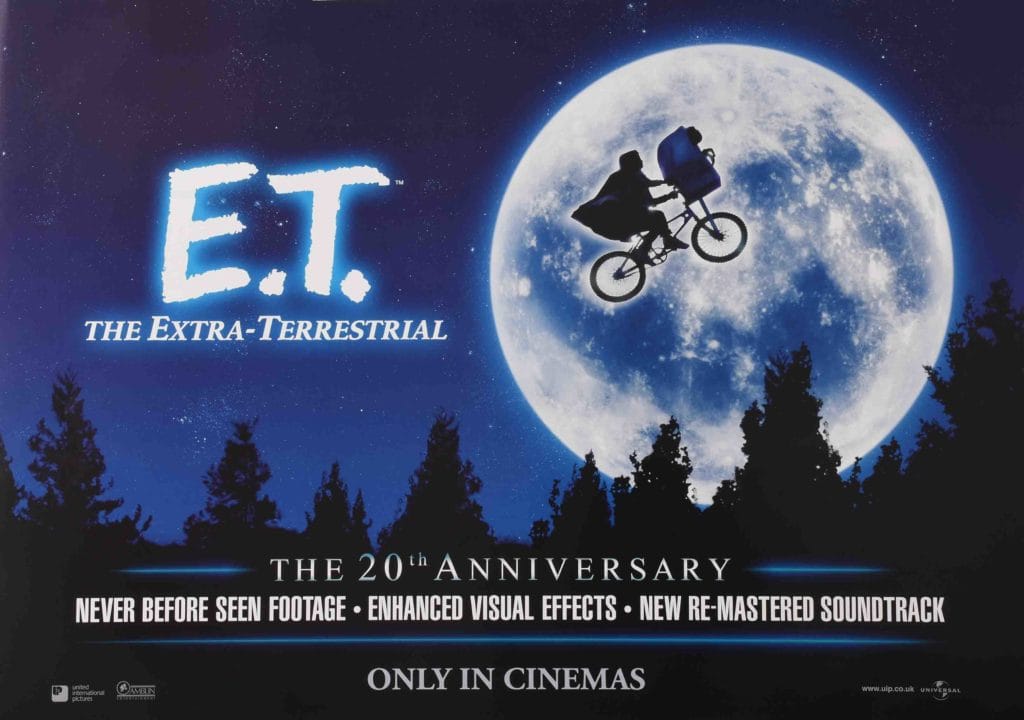
Oh ho, the first but not the last E.T.-related installment of Hollywood & Spine. Someone go back and tell me if that podcast I'm in here was any good. (I mean "any good because of me," of course.) And only I would e-mail interview a prose adaptor of my favorite film for a podcast like that. Anyway, there's more archival E.T. stuff coming up on here - you've been warned, but you're probably not surprised! (Originally published 5/5/2022)
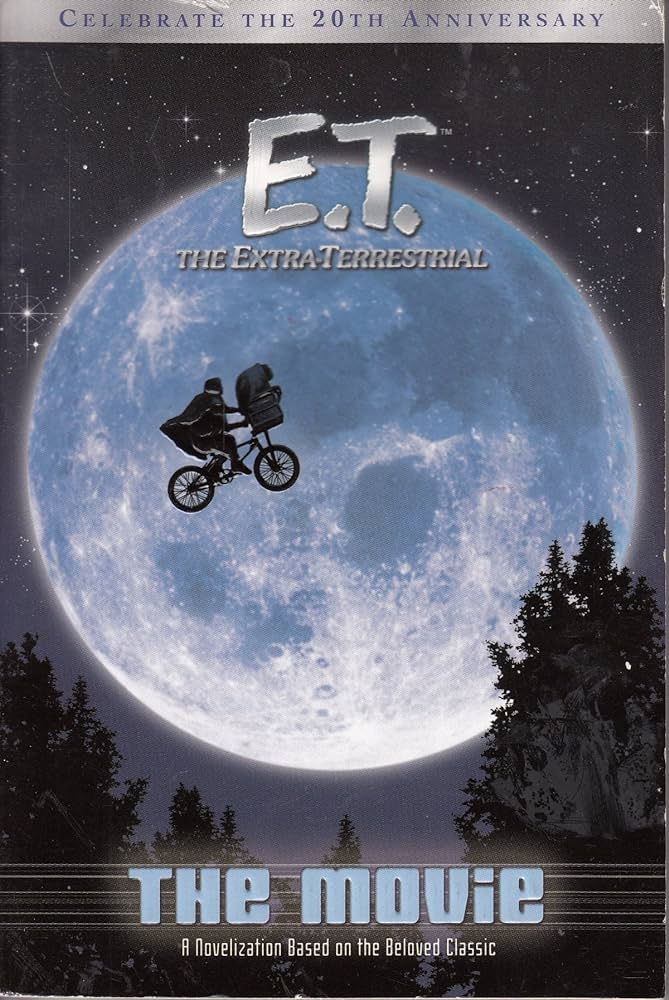
E.T. The Extra-Terrestrial: The Movie (A Novelization Based on the Beloved Classic) by Terry Collins (based on a motion picture screenplay by Melissa Mathison) (Simon Spotlight, 2002)
The pitch: As you're no doubt aware, this one's about a lovable alien whose deep bond with a lonely 10-year-old boy became one of Steven Spielberg's signature films and, for a time, the highest-grossing film in the world.
The author: Terry Collins is a prolific writer, editor and educator with an impressive list of credits, including a large amount of young reader adaptations of stories based on the beloved Nickelodeon series Spongebob SquarePants.
The lowdown: As Hollywood & Spine has pointed out before, there are a lot of cool folks working in the novelization fan space. One of the most astute and in-depth is the podcast Authorized, a deep roundtable discussion hosted by (among others) Andrew Overbye, Hannah Blechman and Johnny Pomatto. Their commitment to esoteric adaptations extends to the often-overlooked junior novelization field, and they were kind enough to invite me on the show to talk about - what else? - an adaptation of my favorite film. You can now hear that episode today on Apple, Spotify, or wherever you listen to your podcasts.
I really appreciate Andrew, Hannah and Johnny's insights and their allowance to let me go absolute sicko mode over this book and film. You'll no doubt recall that Hollywood & Spine covered both the original novelization of E.T. and an authorized prose sequel, both by William Kotzwinkle. [These will reprint here in July 2024. -ed] Those books were last published in 2002, part of a major campaign in honor of the 20th anniversary of the film (including that infamous digitally enhanced edition of the film). Several young adaptations of Kotzwinkle's E.T., including a slim chapter-style edition and a storybook, were published in 1982 - it was a very popular book - so for Simon & Schuster to ignore those in favor of a whole new edition at the time remains baffling and special, 20 years after its publication. I hope that strange magic is properly conveyed in the episode. (I'm still amused that Collins' book is subtitled "The Movie," as though you'd confuse it with a fleshed-out adaptation of that awful Atari game.)
Because I am an incurable E.T. fanatic and novelization enthusiast, I'm supplying you, the reader, with some supplemental material for after you listen. In prepping for recording, I reached out to Collins himself, who was kind enough to answer some questions about his work on the E.T. adaptation. I alluded to some of his insight in the episode but wanted to provide our readers with his full answers, which I found very illuminating. (A separate note: since the interview and recording, I've had the pleasure of reading Mathison's shooting script in full, which was indeed a key contributor to Collins' work here.)
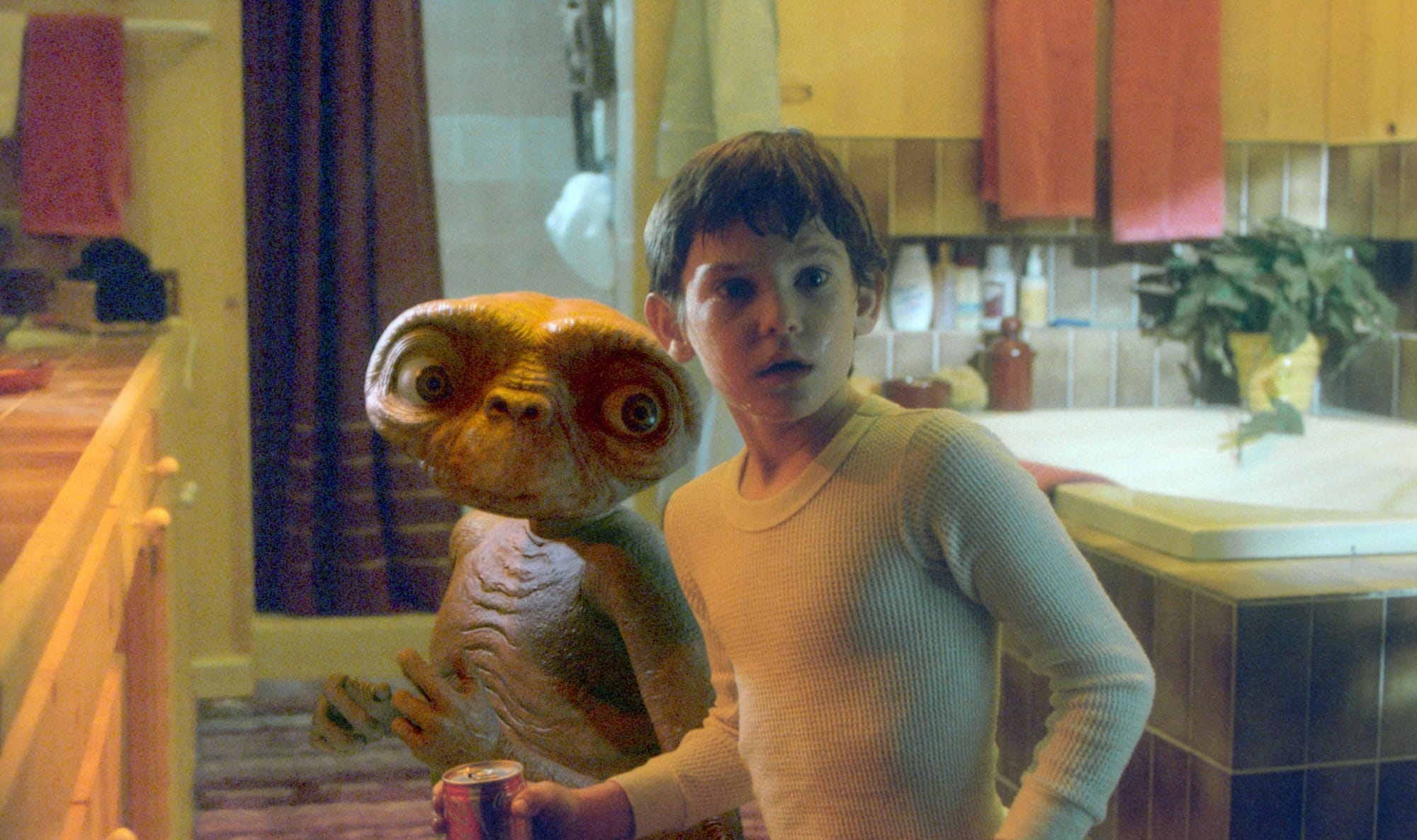
The interview! (conducted with Terry Collins via e-mail - April 15, 2022)
Hollywood & Spine: How and when were you approached to write this junior novelization?
Terry Collins: At the time (1999-2002), I was writing lots of material for Simon & Schuster, including the first of the impending deluge of SpongeBob SquarePants titles. If memory serves, one of my regular editors asked if I was interested and available for a book project featuring E.T. since no young adult version was produced during the original film release. "Yes!" I said with no hesitation in what might be the fastest acceptance to an offer I ever made in publishing.
H&S: How long did it take you to write and submit your drafts? Did you have any guidelines from the publisher as far as word/page count?
TC: Deadlines were fair, but tight. There was a word count, but it wasn't set in stone (l wish I could remember what it was...I'm guessing 50,000 to 60,000, but that is strictly a number I pulled out of thin air). The editorial department knew I was skilled at hitting the mark with the number of words from past projects, so it wasn't an issue. I tend to write lean anyway, and knew this particular adaptation would be dialogue heavy in family scenes with silent descriptive interludes featuring E.T. and his experiences. A nice balance I was looking forward to bringing to life.
The book was written with no advance outline. I turned in a first draft, got feedback on some sections, and tightened things up for the second draft which also served as the final. I recall it taking no more than four months from start to finish when the novelization left my hands.
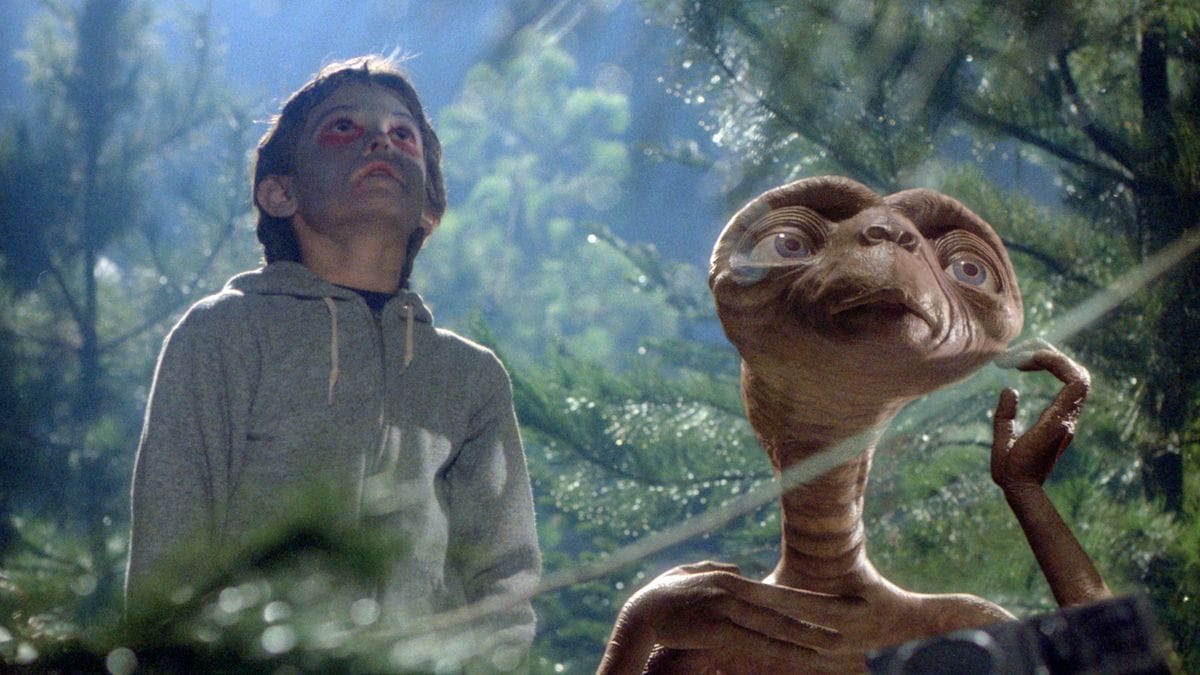
H&S: Did you have any particular affinity for E.T. as a film before getting the assignment? (When I first read the book I was always moved by the piece in your author bio about hoping to catch a glimpse of E.T. and Elliott riding across the moon - I wasn't sure if that was just inspired writing or if it came from somewhere else inside you.)
TC: I was 15 when I saw E.T. during the initial release, and while no self-respecting teenage boy would ever admit to crying in public, I think I'm safe now to reveal the film made my eyes fill with tears in the darkness of the long since closed Mayberry Cinema. To be given a chance to write a prose version was a gift. Truly a magical film for all ages, and one that holds up today. So, yes, I had quite an affinity for the movie, which was released on June 11, my birthday!
As a side note, I dedicated the book to my grandfather who had passed during the time I was writing the book. He never understood my love for science fiction and fantasy, but he supported me with encouraging words, and many purchases of books and comics while I was growing up. Sadly, someone somewhere in legal at Universal cut the dedication at the last minute for reasons unknown.
H&S: Were you familiar with William Kotzwinkle's novelization from 1982? If so, how did you avoid overlapping with that adaptation?
TC: I knew of the novelization, but luckily had never read it. Any similarities between the two can be traced back to the screenplay.
H&S: What were the challenges of adapting a movie into a book 20 years after the fact? (I ask this knowing that most traditional novelization work can involve adapting a script rather than seeing the film in any state of completion.)
TC: I did watch my VHS copy of the movie once before I began writing, but I went more with my memories and impressions of the film and the actual Mathison screenplay (more on this to follow) to craft the novelization. I know I wanted the book to stand alone and offer something unique instead of being a rote adaptation.
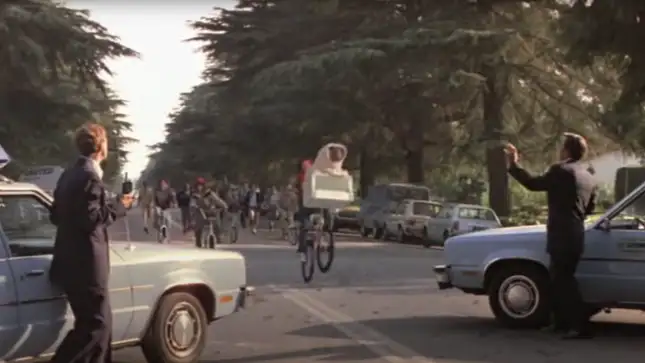
H&S: Did Universal make you aware of any changes being made to the film for its 20th anniversary? Your book almost pointedly (perhaps unintentionally) disregards the two most controversial changes from the 20th anniversary edition: Mary telling Michael he may not dress as a "terrorist" for Halloween (in the reissue it was dubbed to "hippie") and the CGI removal of guns carried by the government agents, replacing them with walkie-talkies.
TC: That's a great question, and luckily no changes were requested. Why? I have a feeling no one was paying much attention to my adaptation until it was published. As a fan of movies in general, I can't say I care for any of these sorts of changes (Yes, George Lucas, I'm looking at you).
H&S: Did you have access to Melissa Mathison's screenplay? There are quite a few scenes in your book that didn't make it into the movie, that I assume might have come from there, as not all of them are known to have been filmed.
TC: I received a copy of the Mathison screenplay early on and after I asked about what was on and off the table, I was told I could use anything from the script. This was taken full advantage of since I was enough of a fan to know some of these scenes had been trimmed from the movie or never shot in the first place. This was another way of making the novelization something special, and I was proud to write it with these character moments making their first appearance to a mass market.
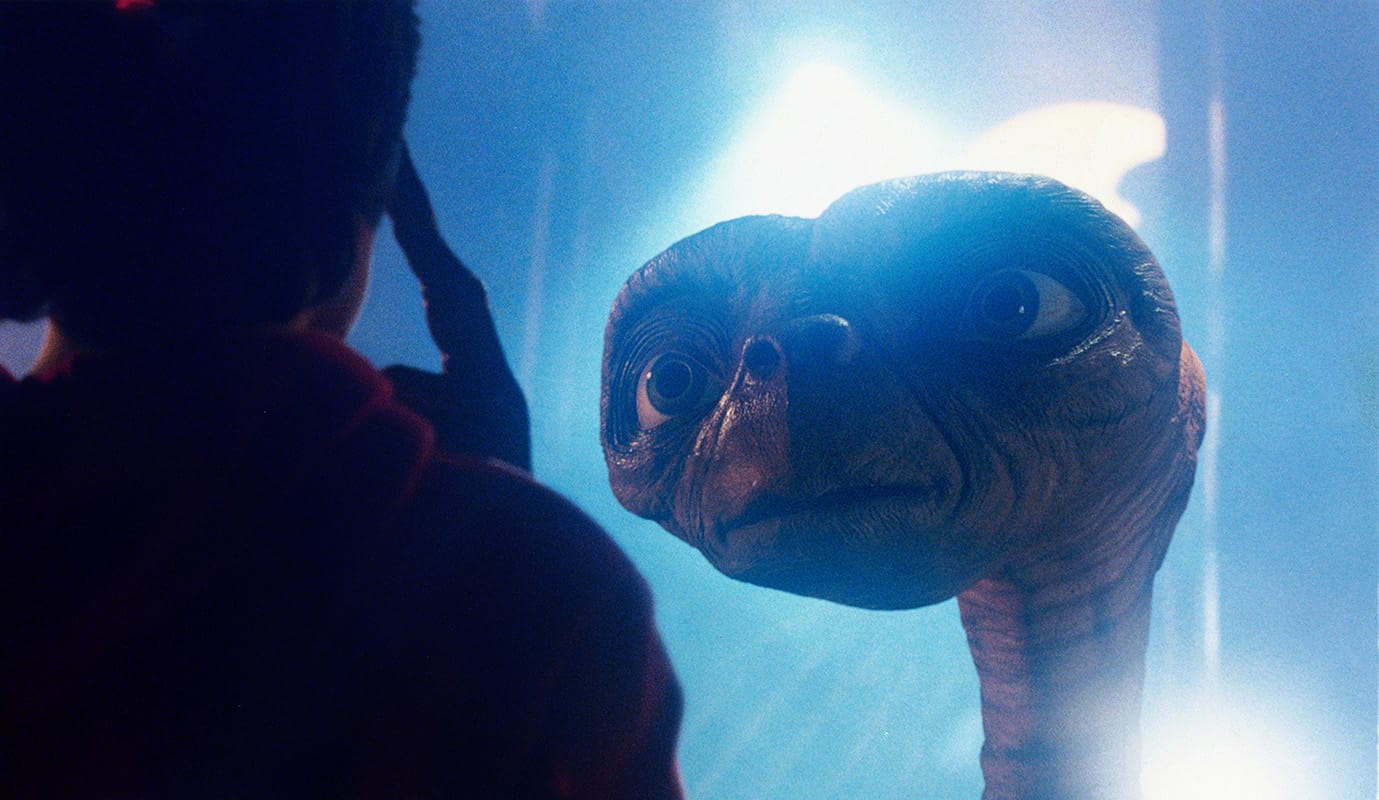
H&S: Looking back, how do you feel the book stands up among your works for young readers?
TC: I honestly think it is one of the best novelizations I wrote for young readers. My love for the movie shines through, and I hope it is reprinted for a new audience during a future anniversary release.
